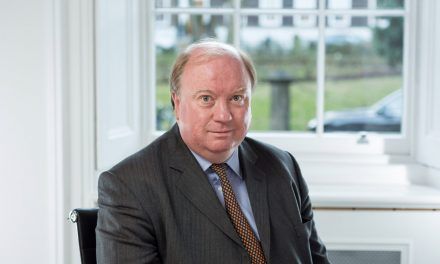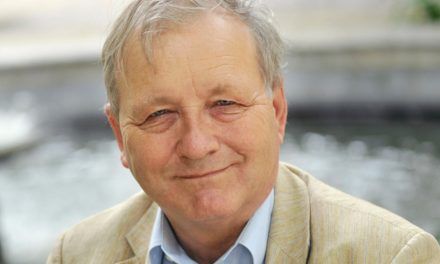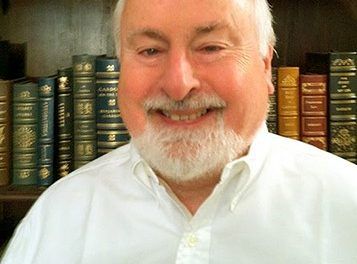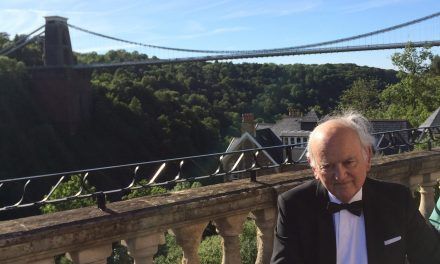Written by Tony Zacaroli with assistance from friends and colleagues.
Robin was truly exceptional. Calm, kind, carefully-spoken, dry-humoured, generous, understanding – all of these and quite brilliant: as lawyer and advocate, and as friend and mentor to everyone who knew and worked with him. A man of great accomplishment achieved with such style and charm.

His outstanding intellect was evident the moment he walked into chambers in 1986, then at 3 Paper Buildings. Regarded by at least one of his pupil supervisors as, without doubt, the most outstanding pupil he had mentored, he very quickly established himself as the junior every silk wanted to lead. In many cases, it was Robin who led the way. One silk who had the benefit of a superb ‘Dicker’ script in the early 1990s relegated his own role (albeit perhaps a tad self-deprecatingly) to that of ‘talking parrot’. Robin skipped straight over the ‘struggling junior’ part of the typical barrister’s career. He quickly became the junior of choice for city solicitors. The description of an overnight opinion produced by a young Robin mid-trial, from someone who instructed him many times over his career sums up why: ‘It was a typically crisp, clear and concise analysis that was thrilling to read and enormously helpful’.
That Robin’s early promise was fulfilled, and in spades, is a matter of record. The words ‘stellar career’ are too easily said, but in Robin’s case they are a simply stated truth. A Westlaw search of ‘Dicker QC’ reveals well over a hundred cases since he took silk at the early age of 38 in 2000, and many more before. As the same search shows, these include many of the most important cases in his chosen fields of commercial, financial, insolvency and restructuring law. He was equally at home in the Commercial Court, the Chancery Division, the Court of Appeal or the House of Lords/Supreme Court. In one memorable case, the power of his advocacy was such that he prevailed at first instance, in the Court of Appeal and the Supreme Court, notwithstanding that his case in the Supreme Court was the exact opposite of that he advanced before the trial judge. It is a rare feat to win at all levels despite switching sides. In another, one of the BCCI appeals to the House of Lords, the written case drafted by Robin was singled out by Lord Hoffmann, no less, as the best he had ever read. A rollcall of the major cases in which Robin appeared would fill too much space: much easier to name the few cases of the last three decades in which he did not make an appearance. None of this, however, fully does him justice: it is the way he went about his work that marks him out as special.
To those of us lucky enough to be on the opposite side of a courtroom to Robin, it was always the most challenging experience. Every point of weakness would be identified and exposed, clearly, incisively, methodically and persuasively, but never unkindly. The fear of the withering ‘as we understand my learned friend’s submission’ (with the emphasis on we, conjuring up a picture of Robin and his team sat round until the earlier hours trying desperately to decipher whatever nonsense you had written or said) was just one of the reasons you had to work twice as hard when Robin was on the other side. Sparring in a courtroom with Robin was the real highpoint of my and many others’ life at the bar. His intellectual integrity meant you always knew where you were. His arguments were compelling and easy to follow; it was just that, if you did, and were not on his side, you invariably ended up at a destination where you – or more importantly your client – did not want to be. He was unfailingly calm and polite, no matter what provocation he received from the bench or the bar: it is impossible to think of an occasion where he lost that cool, confident and commanding air.
All this was the product not merely of innate intelligence, but of meticulous preparation. Indeed, everything about him was meticulous, down to his incredibly clear, neat handwriting – and the exact alignment of the different coloured pens alongside his notepad on the desk. He set himself the highest standards, working long hours to ensure that every case was analysed from all angles, any weak points covered and all possible questions from the bench or from clients were anticipated.
As a leader, mentor or pupil supervisor, he expected the same high standards of others. The first day of pupillage with Robin was generally daunting. Some feared they would not make it through the week. He was not someone given to small talk – never using three words where one would do. And more often than not, no words at all were necessary: who can forget his facial expression listening to a less than convincing explanation of a particular point? As one of his former juniors colourfully put it, ‘a look that was politely incredulous, more eloquent in its quizzical silence than any verbal unpicking of my errors could have been’. Preparing written work for him to review brought its own challenges – ‘frankly terrifying’ was the description of one former pupil. Another junior recalls waiting with dread for the return of a draft opinion, only to receive a covering email with the promising remark that he had merely ‘moved around some of the deckchairs’ (a favourite expression of Robin’s), but on reviewing the document itself finding that: the words were different; the structure was different; the points advanced were different; the cases cited were different; and – of course – the quality of the product was incomparably better. Juniors could expect a steady stream of emails in the days prior to a big case: no more than a line or two with a tightly worded question on one or other aspect, sometimes so short as to send the junior into a tailspin trying to fathom the import of, let alone the answer to, each question before the next arrived.
But when his pupils made it through the first week and beyond (they all did) they – equally universally – found the experience to have been the most rewarding. They learned that there is no substitute for hard work, for being on top of the case, for working out the answers in advance to any questions that may come, and all through the prism of decency, calm authority and absolute integrity. In short, he provided the perfect role model of all that a barrister should be. Those lucky enough to have been trained by him have reaped – and continue to reap – the benefit through the rest of their careers.
One of the things many have carried with them, and in turn learned to pass on to others, is the generosity and kindness that Robin showed to those who worked with him. He created a genuine sense of teamwork among his juniors and solicitors. When others’ work deserved to be commended, he did so. In the case of his juniors, he went out of his way to credit their work to the instructing solicitors but would never reveal any behind-the-scenes failings in them. He took time, however busy, stressful or long the day had been, to end it by writing a thoughtful message. When the work of an associate solicitor impressed him, he wrote thanking them for their exceptional work. He treated everyone with the same respect, seriousness and interest, whether they were themselves established professionals or just starting out on their careers. He was never a big fan of ‘business development’ (for him, the concept was irrelevant), but attended events to support more junior members. I do not think he ever believed it, but his mere presence added lustre to the benefit of those junior members.
Robin’s interests spread far beyond the legal world. He was knowledgeable, and although a fundamentally private person he was immensely engaging to talk with, on a wide range of subjects. Sailing was his passion. He pursued this enthusiastically when holidaying in Cornwall with his beautiful classic yachts. Colleagues remember him happily discussing the finer points of the design of the America’s Cup boats (perhaps admiring the precision, with every detail considered – reflecting his own approach to work). But they also remember fascinating discussions with him on subjects as diverse as classic cars, the philosophy of HLA Hart, electric bikes, haute horology, the merits of Schubert’s last three piano sonatas or David Fanshawe’s African Sanctus, the angst of being a season ticket holder at Arsenal, or the pros and cons of Elton John in concert at the Albert Hall. To spend time with Robin and Lindsay away from the work environment was without exception entertaining, fulfilling and enjoyable. Many of us remember with particular affection the weekend that he invited the entirety of chambers to lunch in St Mawes to celebrate with him in the year he took silk. Notwithstanding the petrol crisis, most of chambers made it down to Cornwall to enjoy the warm September sun on the Tresanton terrace and his equally warm generosity as host.
No reflections of Robin would be complete without mention of his sartorial elegance and love of the aesthetic. He was never seen other than immaculately dressed – whether casual or smart – and with every hair in its rightful place. He had a love of beautiful, elegantly designed and crafted things: his clothes, for example (photographic evidence of the Tresanton lunch in 2000 records him wearing a mustard waist coat with a check pattern that would have delighted Rupert the Bear – Robin, of course, carried it off with elegance); his Ducati racing bike (bought as a result of a passion for racing that was mercifully short-lived), the above-mentioned yachts, the stunning 1960s Aston Martin DB5 that would occasionally be seen sitting in Gray’s Inn Square, and even down to his desks and choice of radiator for his room. But with only one memorable exception, the style was always accompanied with real substance. The exception was his first car. Here the style (a Lotus Elan when it was cutting edge) outweighed the substance by a significant margin, purchased as it was without him having yet taken, let alone passed, a driving test.
Despite an obvious love for the law itself, and the undoubted capacity to be a great judge, and despite wavering on the subject for some time, Robin did not in the end opt for a career on the bench. He nevertheless leaves us with seven published judgments as a deputy High Court Judge (one of which was cited with approval by Foxton J as recently as May this year), which provide ample confirmation, if any were needed, that he would have made such a success of a judicial career had he chosen it.
Universally admired and respected in life, Robin’s loss at a cruelly young age is hard to take for all those who had the privilege of knowing him, whether as colleague, opponent, mentor or friend. He is, and will always be, remembered with deep and heartfelt affection.




